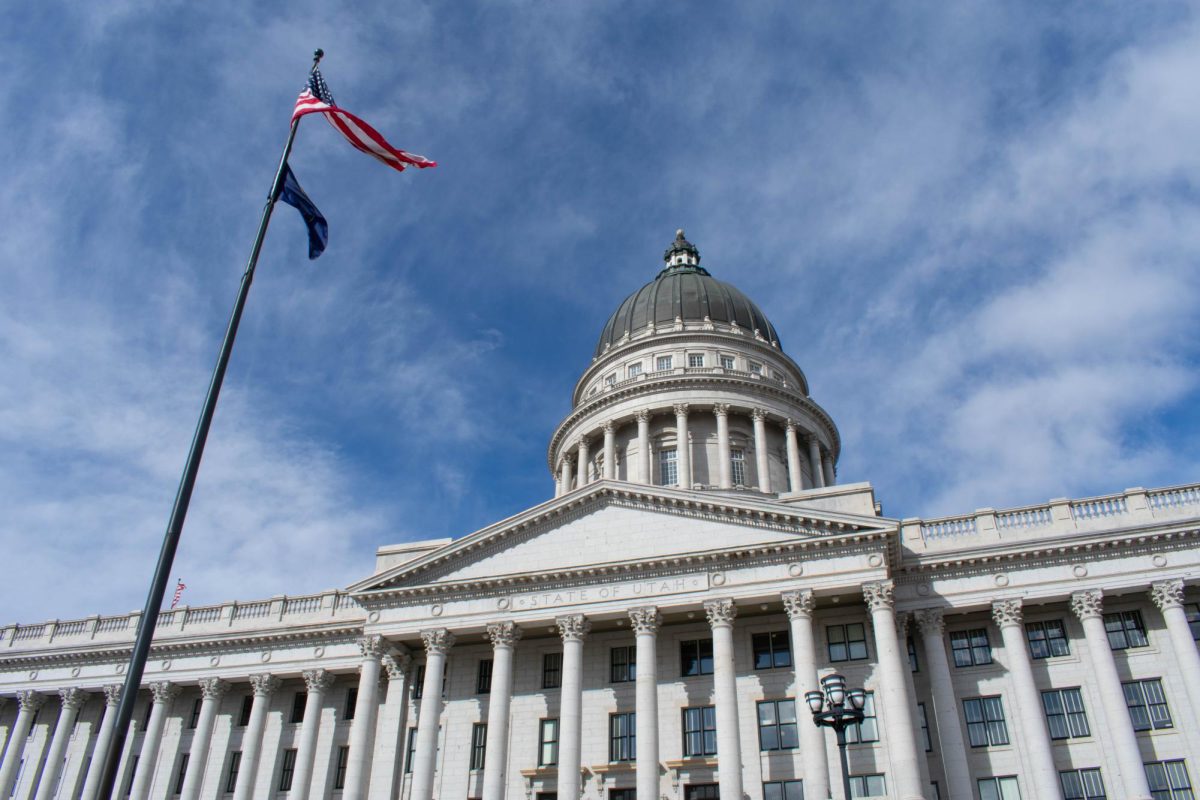H.B. 257, which would prevent transgender people from entering sex-designated private areas in publicly funded facilities that align with their gender identity, is fast-tracking its way through the Utah legislature. The bill, after undergoing changes, substitutes and reverts, would primarily restrict transgender individuals from using public restrooms, locker rooms and dressing rooms.
If the bill is signed into law, transgender people will need to fulfill two requirements if they wish to enter these areas that align with their gender identity. First, they will need to undergo full sex reassignment surgery. Second, they will be required to change their birth certificate to match their gender identity.
House Business and Labor Committee Meeting
On Jan. 17, the House Business and Labor Committee met to vote on H.B. 257. The purpose of the bill, titled “Sex-Based Designation for Privacy, Anti-Bullying, and Women’s Opportunities,” is to “preserve the individual privacy” of females and males and “address gender identity and fear of bullying” in K-12 schools.
The bill’s sponsor, Rep. Kera Birkeland (R-Morgan), said she believes the bill will protect children from bullying and accommodate the different needs of all students.
But many Utahns who gave public comment during the session believe the bill will do exactly the opposite. Bianca Cline, a transgender woman and mother of three, is one of them.
“Being trans is a really difficult thing for most people,” Cline said during the public comment period of the hearing. “This bill would make life even harder than it already is. We’re a vulnerable group. We get attacked or killed or sexually assaulted, not the other way around. This bill will make it very difficult for trans people to exist in public.”
However, for the commentators who spoke in support of the bill, the main concern was safety for children — particularly for girls.
Candace Duncan, vice chair of the Utah Gay-Straight Coalition, spoke against allowing people with male genitalia into private places where girls may feel exposed.
“I’d like to make clear I’m not speaking out against the transgender community but for the safety of girls and women,” Duncan said. “I am against allowing men into women and girls’ safe spaces because that puts the burden on the women or girl in a state of undress.”
Public commentators raised concerns about trans people’s inability to attain sex-reassignment surgery.
“Requiring surgery is extremely hard for trans people,” Cline said. “We’re not the wealthiest people and transgender surgeries are very expensive and very invasive. For the safety of trans people, I hope this bill is not passed.”
For those unable or unwilling to fulfill the gender reassignment requirements, the bill attempts to provide accommodations by requiring all public facilities to have single-occupancy restrooms.
“As they’re building schools, as they’re adding on to their schools, they will be required to add more single occupancy bathrooms,” Birkeland said.
Nathaniel Jones, a transgender man, applauded this accommodation during public comment. He also pointed out the difficulties which may arise in terms of access and equality.
“I commend you for increasing the number of unisex spaces,” Jones said. “I prefer these spaces. However, in my experience, they’re usually unavailable or inconvenient to access. This will require separate and unequal access to public restrooms.”
After public comment, the committee concluded the meeting and voted 12-3 to send the bill to the Utah House Floor for debate. The House debate concluded on Friday, passing the bill 52-17 and sending it to the Senate Business and Labor Committee.
Senate Business and Labor Committee Meeting
On Monday, Jan. 22, the Senate discussed the bill in an emotional debate with several commentators speaking in support of the bill and several dozen in opposition.
During this meeting, Birkeland emphasized her position that H.B. 257 is meant to protect children from bullying and provide privacy.
“It’s a privacy bill and it is an anti-bullying bill,” she said. “This bill ensures … that we have privacy, and that we are not allowing or perpetuating bullying within our schools. The privacy plan is to ensure that whatever your condition is, body image, bullying, medical needs or just discomfort within your own body, you have a place to go and do things that are private in a private place.”
Marina Lowe, policy director for Equality Utah, was the first to speak in opposition to the bill. She disagreed with Birkeland’s position, stating that this bill will translate to more fear for not only transgender people but any who do not conform to a stereotypical gender identity.
“We believe this bill will translate into a cloud of fear that hangs over the heads of transgender Utahns and frankly any Utahns whose gender may not be as visibly clear every time they use a public restroom or locker room or other privacy space,” Lowe said. “Fear that at the very least, they may have an uncomfortable confrontation and at the very worst, criminal consequences.”
The meeting ended after nearly two hours. The committee voted 5-3 to send the bill to the Senate floor.
Substitutes, Reverts and Floor Debates
On Jan. 24, the Senate read the bill for a second time following changes in the bill’s language. These changes would make the bill only apply to government-owned and operated facilities.
The biggest change was the removal of the requirement that people use restrooms according to their assigned sex at birth, and instead focuses on penalties for inappropriate behavior there, according to The Salt Lake Tribune.
However, the original restrictions would remain for restrooms in K-12 schools and changing rooms, which include locker rooms, dressing rooms and showers.
The Tribune also reported that lawmakers said litigation against the bill could be expected.
Thanks to the changes, Sen. Daniel Thatcher (R-Tooele) switched his original no vote to a yes.
“I want to express my incredible gratitude for this big change,” he said. “I hope it is enough to bring support from the community and send the message that we are trying to solve a problem and not target anyone specifically.”
The Senate passed the substitute 20-7. It was heard on the Senate floor earlier today — where lawmakers instead passed the earlier version of the bill, reverting back to restrictions in public restrooms, locker rooms and K-12 public schools.
Early Thursday, Sen. Dan McCay (R-Riverton), proposed a third substitute to the bill, which was adopted later that afternoon. The substitute redefined certain language including changing “publicly funded” to “controlled” in regards to showers and locker rooms.
The House heard the bill on the afternoon of Jan. 25 and is expected to vote on it on Jan. 26.
Editor’s note, Jan. 24 2:25 p.m. • This story was updated to include how H.B. 257 currently reads, a different headline to better reflect the content, that the bill passed through the Senate and that it will most likely be voted on in the House on Jan. 26.














